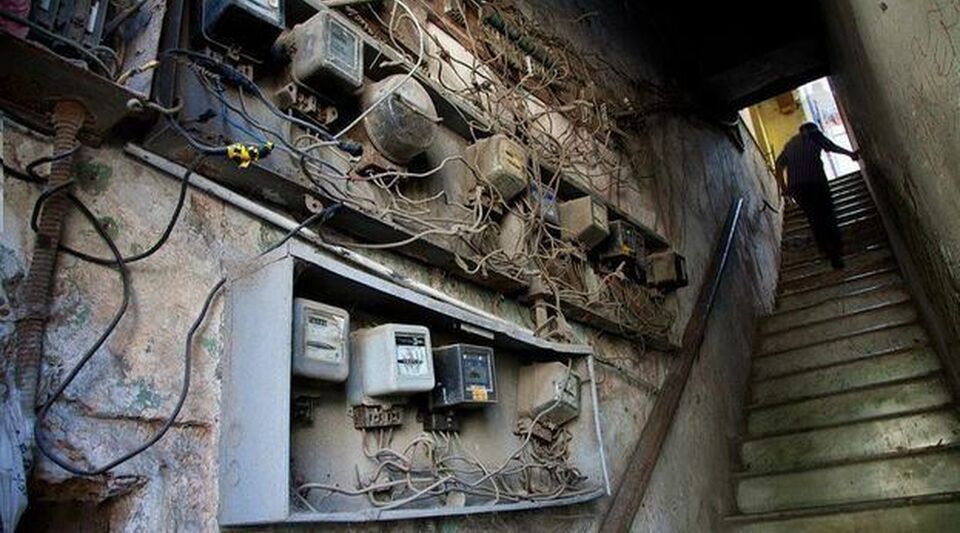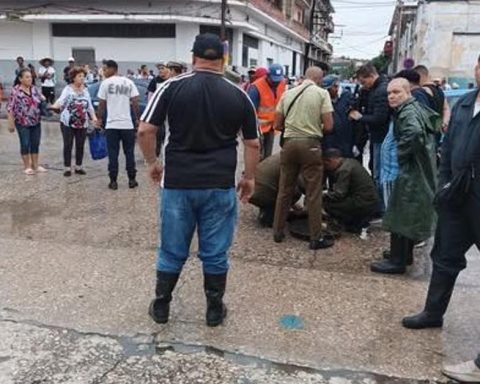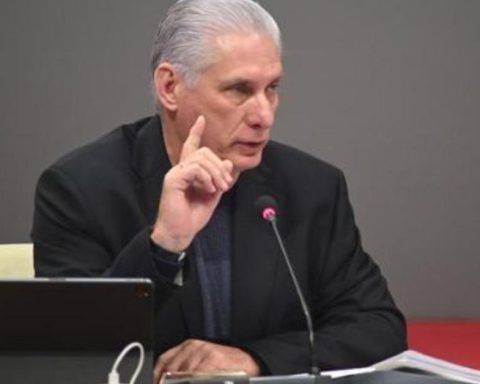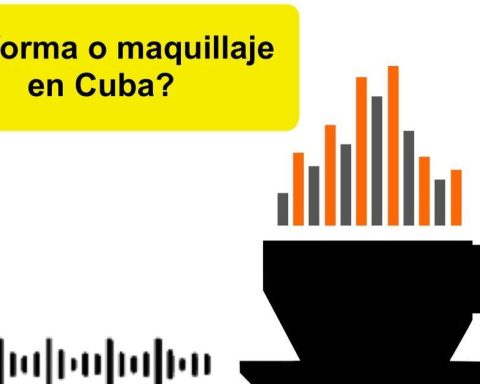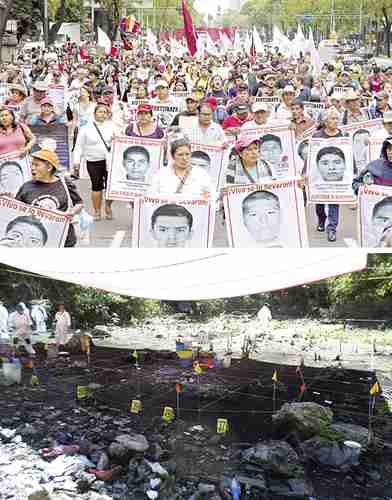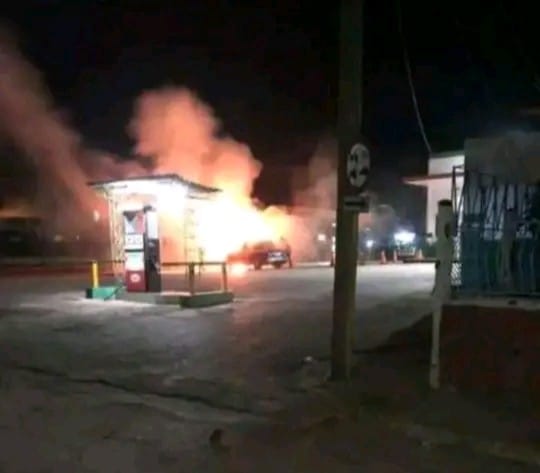With the balcony doors open and the air conditioner turned on, María de los Ángeles spent the hours after the electrical service returned to her Los Sitios neighborhood in Centro Habana. Like many Cubans, the 64-year-old refuses to save energy in the short time that she enjoys the supply, a way to get even for long blackouts.
Despite the fact that the official media are full of phrases that call for saving as much electricity as possible, the energy sector is experiencing the same as so many other state services in Cuba. People tend to lash out at official inefficiency by wasting water, gas, or kilowatts when it finally reaches their home. As a quiet revenge, squandering is also a form of protest.
“In my house they turned off the light from ten in the morning to two in the afternoon and then, again, at night,” María de los Ángeles explains to 14ymedio. “When I saw that the light bulbs came on, I didn’t turn any of them off, so I left them on all morning.” In the block where he lives, many others did the same. “I’m not the one who’s going to save electricity for these incapable people,” she stresses.
The predatory nature of these services dates back to the time when the Cuban regime widely subsidized the supply of electricity, water and gas. Keeping the television on all day, never turning off certain lamps or leaving the stove burning permanently so as not to use up matches became very widespread practices. The official discourse even flirted with the idea that at some point in “the construction of socialism”, all of this would be guaranteed free of charge to the population.
The official discourse came to flirt with the idea that at a point in “the construction of socialism”, all of this would be guaranteed free of charge to the population
But the other side of the subsidies has been the deterioration of the country’s infrastructure, which forces thousands of families to carry water from distant places, improvise an electric clothesline or cook with firewood for lack of other fuels. The mixture of gratuities and deficiencies gave way to a very peculiar consumer: the predator of all kinds of public service.
“In my house we have electricity for six hours a day,” says Raudel, a young man from the city of Alquízar, in the province of Artemisa. “The time we have electricity, we have to do everything: turn on the water pump, cook, try to refrigerate the food so that it survives the next blackout, iron, wash, charge our mobiles and enjoy something on the television.”
Interestingly, the last electricity bill that Raudel received, already in the midst of the energy crisis, was very similar to the one from a year ago, when he paid about 3,000 pesos a month for the service. “It doesn’t lower the bill because we can no longer stand it when the electricity comes on, I tell my children to do whatever they want. If they want to have the room split on all that time, let them do it. If they want to make a pizza in the electric oven, let them do it too”.
Raudel has a small lathe workshop, where he also does blacksmithing and metal welding. “I hadn’t worked much for years because the cost of electricity skyrocketed, but now I don’t measure myself. Sometimes I start using the current until dawn,” he admits.
“Over time I began to wonder where all that energy that I saved was going to end up, if the service was becoming more expensive and of worse quality”
Last year, when the energy crisis had not yet reached the current serious situation, the official newspaper Granma recommended “freeze bottles of water at night and leave them out during the day, so you don’t have to open the refrigerator as often”, also “gather as many pieces as possible to iron or wash”. However, to the extent that blackouts have increased, the reaction of consumers seems to be going in another direction.
“When I was a child I was part of the Click Patrols and I was obsessed with checking my house if there were any light bulbs turned on unnecessarily,” recalls a resident of the city of Sancti Spíritus. “But over time I began to wonder where all that energy I was saving was going to end up, if the service was becoming more expensive and of poorer quality.”
Julio, a neighbor from Santa Clara, thinks the same. “There is talk of saving, but is it worth saving? They will continue to turn off the current and live well, without the many needs that we people have. They, those of the Government, do not have blackouts.” Julio attributes to waste the character of silent protest. It is the only thing that can be done “from home and without ‘pointing out’ to us. A grain of sand against those who misgovern this country.”
“Seeing those photos of Havana turned off,” says the man, “where the only thing that is turned on are the hotels, gives an idea of what is happening in Cuba.”
The times are not the same either. From the 1980s when Cubans had a few electrical appliances, it has passed to the current moment in which cooking food depends in many homes on rice cookers and electric pressure cookers, frying pans, fryers and ovens that also work connected to the electrical outlet. The number of telecommunications devices has also skyrocketed.
“I do iron with the air conditioning on or use the hair dryer for the towels. I do what I want with the electricity I pay for”
“In my house we live three people, each one with a mobile, we also have a tablet and a laptop“, lists the woman from Sancti Spiritus. “When the light arrives after a blackout, you have to connect all that immediately to have it charged when the current goes out again. Also two rechargeable lamps that we use to not be so dark, we have to put them on charge.
The Electric Union of Havana made a recent call to lower consumption in order to alleviate the blackouts in the city: “The rest of the customers of the other blocks would be very useful at this time if we save and it will reduce the time of affectation of the customers of block 4”, wrote the state monopoly on its Facebook account, a text that provoked a barrage of insults from consumers. Most openly declared that it was not going to be measured in a consumption that paid dearly and was not stable.
One commenter summed up her challenge: “I do iron with the air conditioning on or use the hair dryer for towels. I do with the electricity I pay what I want.” The Internet user received dozens of messages of approval and sympathy from those who also use the light switch as revenge.
________________________
Collaborate with our work:
The team of 14ymedio is committed to doing serious journalism that reflects the reality of deep Cuba. Thank you for joining us on this long road. We invite you to continue supporting us, but this time becoming a member of our newspaper. Together we can continue transforming journalism in Cuba.
